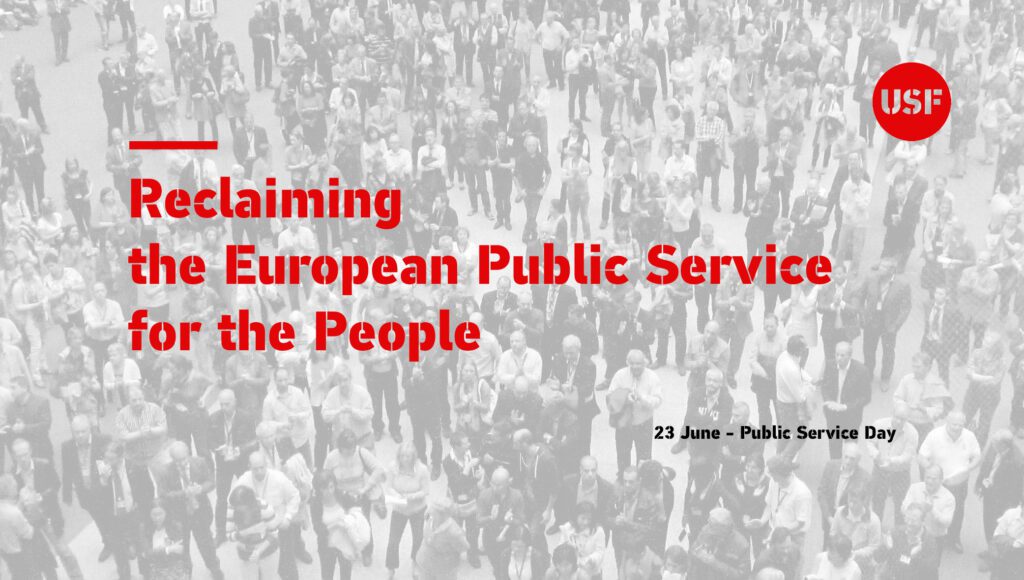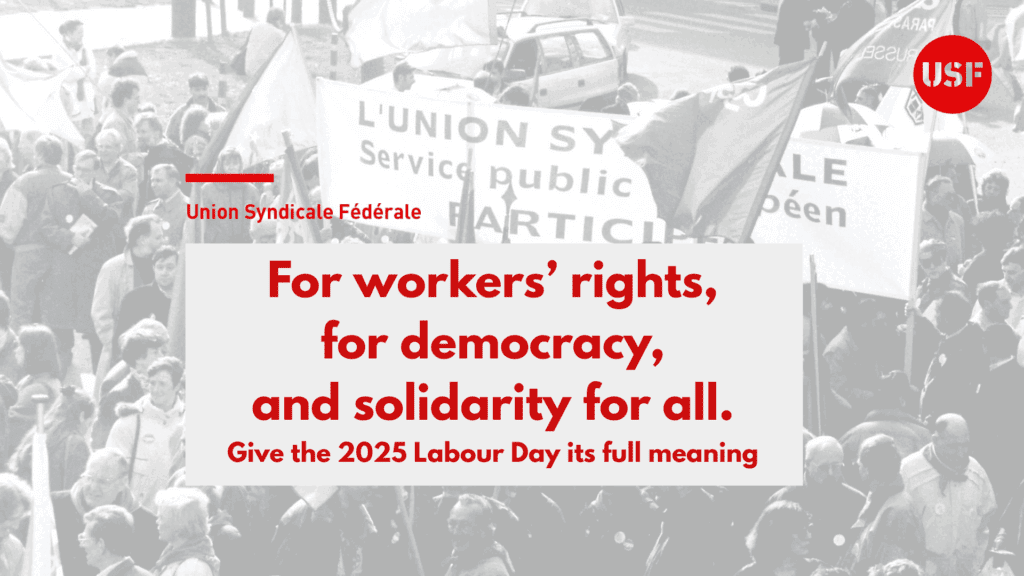As defined by the International Labour Organisation – ILO, social dialogue includes all types of negotiation, consultation or simply an exchange of information between representatives of [public authorities], employers and workers.
At our premises, social dialogue should be the means by which the Commission, as an employer, discusses with your trade union representatives (Trade Union or Professional Representatives or OSPs) any matter relating to the staff policy and working conditions of officials and other servants. Relations between the OSPs and the employer are laid down in Article 10c of the Staff Regulations and are governed by a framework agreement (the “Framework Agreement” concluded on 18 December 2008, annexed).
Social dialogue was not always honest or fully respected by the previous Commissions, but with the current one, it is reduced to chagrin. Indeed, with the notable exception of decisions on working time and harassment, there has been no social dialogue.
Good declarations of principle such as:
“The European Commission would like to underline its commitment to the importance of the role and responsibility of the OSPs by involving them in the most transparent and effective way in the life of the Union institutions and bodies”
or
“The trade unions and staff associations shall act in the general interest of staff without prejudice to the powers of the Staff Committees under the Staff Regulations”
Can they be translated into everyday reality? Certainly not, although they are not the dream of a trade union activist that has been somewhat lost in remembrance of past years but are part of an agreement that the Commission has reached and which is still in force.
The deterioration in the quality of the dialogue between staff representatives and the Commission has been gradual, but it has undoubtedly taken a dramatic and very dangerous speed since the beginning of the current Commission’s term of office.
But what are the complaints about these scoundrels on the part of the trade union? Unfortunately, we have only the embarrassment of choice.
If the Commission “would like to stress its commitment to the importance of the role and responsibility of the trade unions and staff unions by involving them, in the most transparent and effective way in the life of the institutions and bodies of the Union”, how does this happen:
· Many rules or changes to rules or other major strategies (HR strategy, well-being, psychosocial risks, building policy) have been implemented/ published either without consultation of the intermediary bodies (OSPs and Staff Committee) or have been the subject of direct consultation (some) of staff through polls regardless of the intermediary bodies representing them. Of course, these direct consultations are the result of a multitude of sometimes contradictory proposals, among which the employer has of course always found the right ones;
· Most of these rules/major changes to rules/strategies have been the subject of parodies of exchange with intermediary bodies. ‘Information meetings’, in particular on the new competition model or the revised appraisal report, took place at the same time or even after the implementing decisions had been taken.
If “the trade unions and staff associations act in the general interest of staff without prejudice to the powers of the Staff Committees under the Staff Regulations”, why do we try to limit or at least complicate as much as possible the possibility for trade unions and staff associations to communicate with their members and staff in general, but this will be the result of the approach proposed by DG HR concerning the use of email by OSPs.
The very good colleagues in DG HR explained to us and reiterated that it is not their will, nor the political level, but an obligation which the Commission has under the General Data Protection Regulation (Regulation (EC) No 2016/679 of the European Parliament and of the Council of 27 April 2016), which cannot be avoided.
As is well known, regulations are legally binding in their entirety and directly applicable in all EU Member States. It would therefore remain to be explained how the other EU institutions do not feel obliged to apply it as regards communications between their OSPs and their staff. Are they the law? Are they aware of it, but are they deciding to violate it? Or is this a new attempt by the Commission to cut wings off trade unions by limiting their communication capacity?
Finally, according to a “decision” of DG HR (decision-making level: Director), the European Commission would probably be the only employer throughout the EU who arrogates the right to decide whether or not its staff have the right to strike. We are well aware that the exercise of the right to strike is often regulated and that, therefore, abstention from work may be declared unlawful. But by whom? So long as we always know, within the EU, by a third body, never by the employer.
Well, the European Commission therefore seems to be the only employer in the EU who embraces this right, with an interpretation of the rules which could, for example, prevent us from declaring a solidarity strike with colleagues in another Institution or Agency[1].
Madam President, Commissioner Hahn, Union Syndicale asks you to resume the habit of a frank and open dialogue with staff representatives and to remind your staff and the departments under your political responsibility that the rhythm of sermons and threats of sanctions against third parties (inside and outside the EU) should be reduced and returned to the good habit of “to lead by example”.
We remain confident that this is possible. The administration of our institution has demonstrated its ability to conduct this type of constructive dialogue during the preparation of the key dossier “Working time and hybrid work”. We regret this is the only exception!
[1] Note ARES (2022) 7497993: “this is a solidarity strike [with a national movement] on claims on which the European Commission cannot act…”




